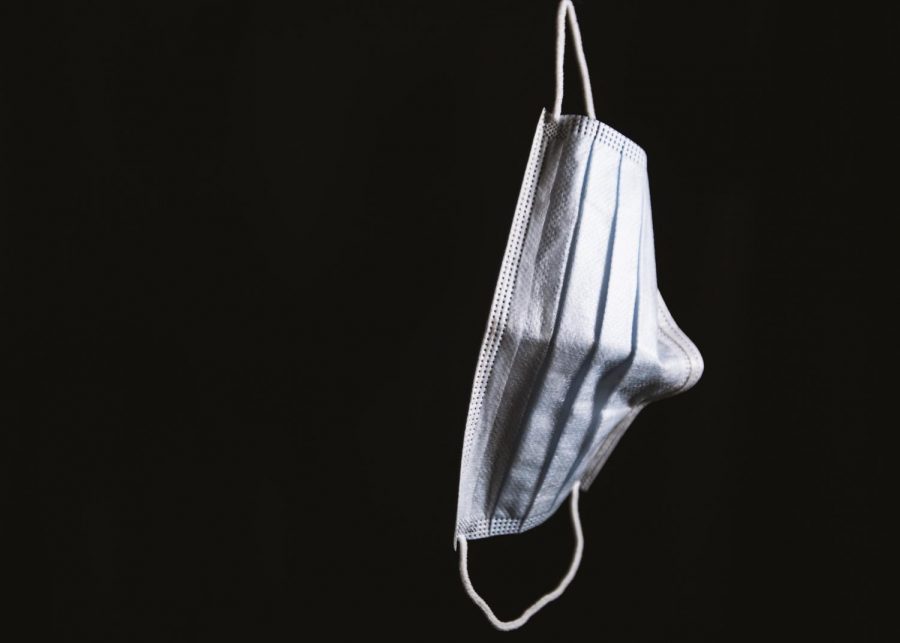UAC Deals With COVID-19
April 7, 2020
At first, the University of Utah sent out two emails notifying students about how to protect themselves from the Coronavirus (COVID-19), how to prevent the spread of the virus and also a recommendation to avoid traveling to areas where states of emergency have been declared.
One notice, sent out by President Ruth Watkins on Mar. 6, outlined the latest updates about COVID-19, including domestic travel guidance, required self isolation and social distancing, practices for maintaining a safe campus environment and combating stigma associated with the virus.
Governor Gary Herbert issued a state of emergency on Mar. 6 as well, explaining that his team was just taking necessary precautions so as to be adequately prepared if the virus were to reach Utah. Hours later, the first case of the virus was identified in a Davis County resident that recently returned from a cruise. As of Mar. 15, Utah has 24 cases of COVID-19, 14 of those located in Salt Lake County.
U officials are worried about the potential spread of the virus. The U is actively discouraging students from traveling to California, Florida, Maryland and Washington, which all have declared states of emergency due to the COVID-19 cases there.
After these initial warnings, schools around the country started to either close down or switch to entirely online classes for the remainder of the semester. U students awaited a decision, and found out on Thursday, Mar. 12 that the U would be canceling classes the following Monday and Tuesday and switching to all online classes for the remainder of the semester. Students are advised to stay where they are if they traveled to their home for spring break, but students are allowed to remain on campus as dorms, dining facilities and resources such as the student life center will remain open.
There seems to be a lot of concern surrounding the virus at the U’s Salt Lake City campus, but the concern does not stop in Utah.
The dean of students at the U’s Asia Campus, Randy McCrillis, determined that all course learning will be completed online, in a method called “distance learning”, until April 6. Some hands-on laboratory courses, however, will be allowed to continue in class.
“The biggest problem right now is that we all have to take online classes until the beginning of April. It definitely is not ideal for domestic students and international students, but we are all trying to get through it together. It is much harder to meet your professors and classmates, and I think that is one of the worst parts about the whole situation in general,” said Kylie Lo, a fourth-year student studying psychology, criminology and sociology at the UAC, in an email interview.
Along with McCrillis, Lo said the study abroad office has been very communicative with students, sending warnings and keeping them up to date about the evolving situation.
“The study abroad office has mentioned that we are NOT required to come back to the US. It is purely the student’s choice whether or not they wish to return home,” Lo said.
The study abroad office said they did not know any more than the students and refused to add any comments.
Lo also talked about the precautions being taken to reduce the risk of the spread of COVID-19 on campus and the surrounding Incheon area.
“In general, all of these advertisements are being displayed everywhere in Korea. On campus, they have signs posted on the doors before you enter the dorms, they are on all the bulletins, etc. Hand sanitizer is dispensed pretty much everywhere. The elevators for the dorms have it taped on the side. Buses have several bottles throughout, and many restaurants and public spaces in general won’t let you enter without using the hand sanitizer first,” Lo said.
The UAC has issued specific recommendations on its website to aid in the prevention of the spread of COVID-19.
Along with the precautions on campus, the fear of the virus has also impacted the off-campus social atmosphere.
“As I’ve been on and off campus, I feel like I see more international students out and about as opposed to domestic students. Everyone is wearing masks and people are even wary about the places they go to eat. If there are too many people around, we try to sit away from them and isolate ourselves,” Lo said.
While Lo mentioned several times that she and other students are trying to make the best of this disappointing situation, the virus does make it more difficult to adjust to their new physical and cultural surroundings.
“I also think that for first-time study abroad students, it makes things harder to get adjusted to. We are in a whole new country with a new culture and we’re trying to get accustomed to it. That being said, with the whole virus situation, it makes it harder to meet new people — as many people do not want to come outside — and it is not quite the campus experience we were all hoping for,” Lo said.
President Watkins also included the dangers of stigma in her university-wide email to combat social stereotyping, stating “Stigma hurts everyone by creating fear or anger toward ordinary people instead of the disease that is causing the problem.”
For any questions regarding the outbreak and preventative measures related to the COVID-19, students are recommended to look on the university’s webpage or the CDC webpage about stigma and resilience. Hotline: 801-213-2874 should be called for specific COVID-19 questions that are not answered in the websites.
k.silverstein@dailyutahchronicle.com
Editor’s note: Signs and symptoms of COVID-19 include fever, dry cough, tiredness, and shortness of breath. These symptoms are believed to occur between 2 and 14 days after a person is exposed to the disease. If you have these symptoms and have recently come into contact with a person who is known to have COVID-19, or if you have recently traveled to an area with community spread of the disease, you should call your doctor. Areas with community spread of COVID-19 are believed to include China, South Korea, Italy, Iran and Seattle. If you do not have a doctor who you visit regularly, please call the Utah Coronavirus Information Line at 1-800-456-7707 or the University of Utah Health hotline at 801-587-0712. Do not go to a healthcare facility without first making arrangements to do so.












